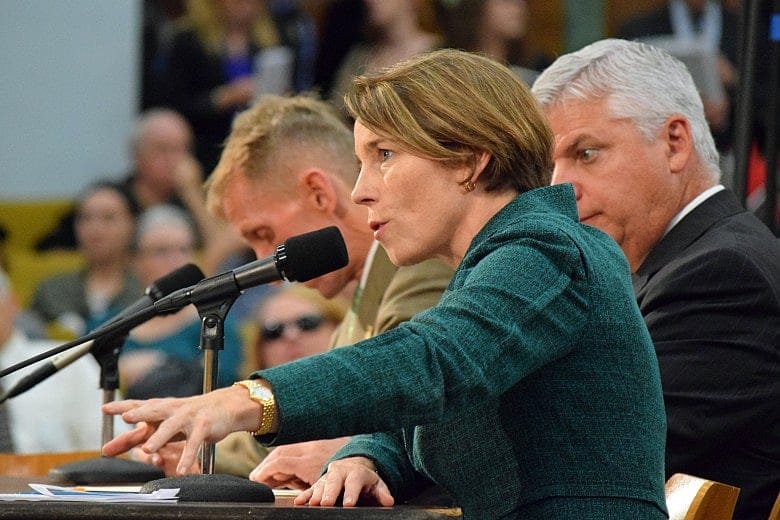Kennedy, Healey push lawmakers to broaden transgender protections

BOSTON — U.S. Rep. Joe Kennedy and state Attorney General Maura Healey appeared at a State House hearing Tuesday to support bills that would increase protections for transgender people.
Before a packed Gardner Auditorium, supporters and opponents spoke out about the measures, which would govern access to public spaces, including gender-segregated restrooms and school locker rooms. Both bills would expand a 2011 law aimed at preventing discrimination against transgender people by extending that protection to cover access to public accommodations.

